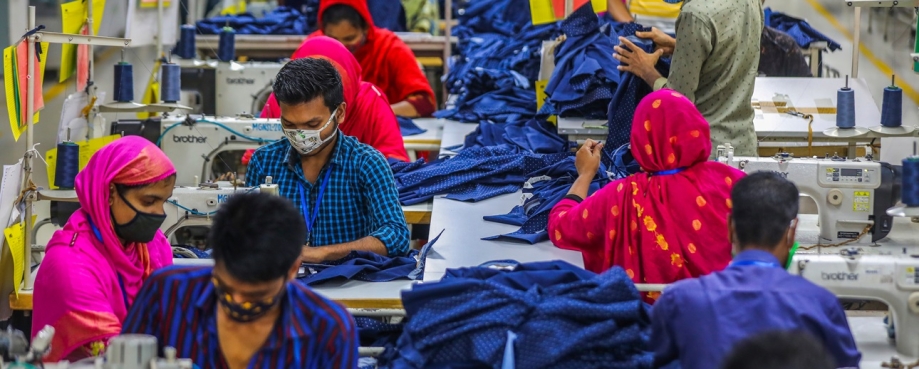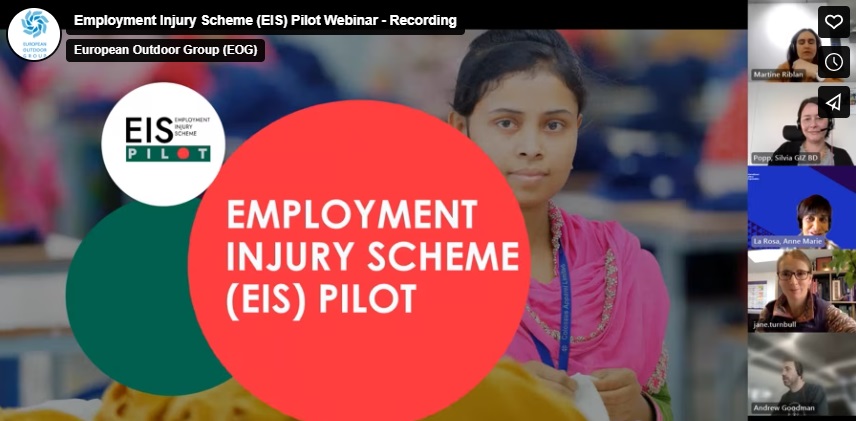NEWS
16
Jan,
2024
By: Silvia Popp

The Employment Injury Scheme (EIS Pilot) is a milestone for Bangladesh’s export-oriented ready-made garment (RMG) workers, with the potential to shield them from the financial storm of workplace injuries and death.
16
Jan,
2024
By: Silvia Popp

The Employment Injury Scheme (EIS Pilot) is a milestone for Bangladesh’s export-oriented ready-made garment (RMG) workers, with the potential to shield them from the financial storm of workplace injuries and death.
01
Jan,
2024
By:

Last week, the EOG was joined by the International Labour Organisation (ILO), Giz and Oberalp for a webinar on the Employment Injury Scheme Bangladesh (EIS). This pilot project has been put in place to bring insurance to workers in Bangladesh, and provide them with financial protection in the event of suffering an injury or death while at work.
01
Jan,
2024
By:
At DECATHLON, we want to promote social responsibility wherever we play. We believe that the size of our business provides us with the unique opportunity and responsibility to promote safe, healthy and fair working conditions across our value chain and to play our full part in contributing to a fair and equal society.